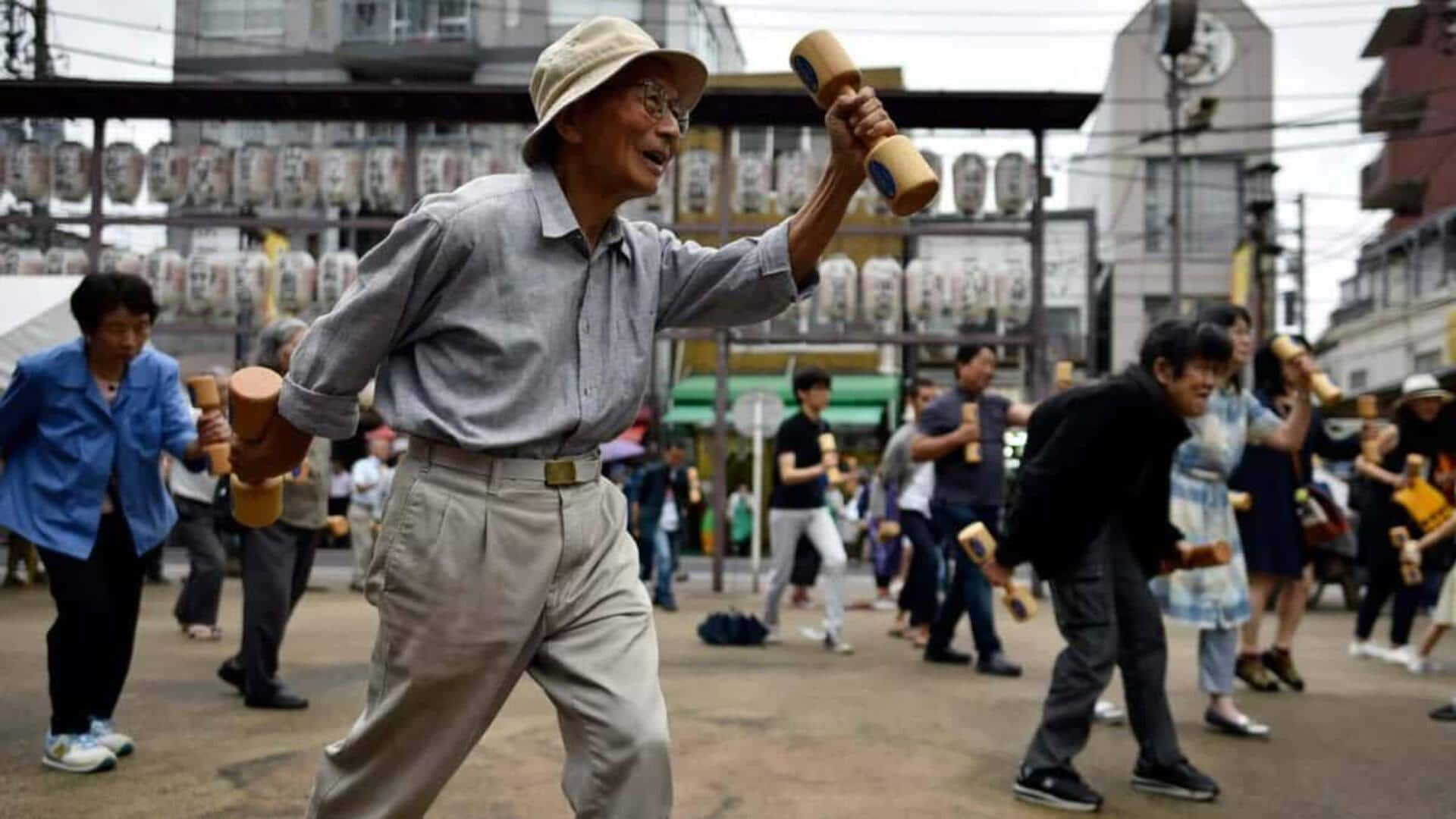
Nearly 100,000 centenarians in Japan, women make up 88%: Report
What's the story
Japan has set a new record for the number of people aged 100 or older, with nearly 100,000 centenarians as of September. The health ministry reported that there are 99,763 people in this age group, with women making up a staggering 88% of the total. This marks the 55th consecutive year that Japan has broken its own record for centenarians.
Aging society
Oldest person in Japan is 114-year-old woman
Japan is known for its long life expectancy and is often home to the world's oldest living person. The country has one of the fastest-aging populations in the world, with a healthy diet and a low birth rate. The oldest person in Japan is 114-year-old Shigeko Kagawa from Yamatokoriyama, Nara, while Kiyotaka Mizuno, 111, hails from Iwata.
National recognition
Health minister congratulates centenarians on their longevity
Health Minister Takamaro Fukoka congratulated the 87,784 female and 11,979 male centenarians on their longevity. He thanked them for their "many years of contributions to the development of society." The figures were released ahead of Japan's Elderly Day on September 15, a national holiday where new centenarians receive a congratulatory letter and silver cup from the prime minister.
Population growth
Centenarian population growth since government survey began
Japan's centenarian population has grown significantly since the government started surveying in 1963. Back then, there were only 153 people aged 100 or over. The number rose to 1,000 in 1981 and reached 10,000 by 1998. This increase is mainly attributed to fewer deaths from heart disease and common cancers such as breast and prostate cancer.
Health factors
Diet and lifestyle factors contributing to longevity
Japan's low obesity rates are a major factor in its higher life expectancy, especially among women. The country's diet is low in red meat and high in fish and vegetables. Public health messaging has also successfully convinced people to reduce salt consumption. In addition to diet, Japanese people tend to stay active into later life by walking and using public transport more than their counterparts in the US and Europe.
Record keeping
Data errors in global centenarian numbers
However, some studies have questioned the accuracy of global centenarian numbers due to data errors and unreliable public records, with missing birth certificates. A 2010 government audit in Japan found over 230,000 people listed as being aged 100 or older who were unaccounted for. Suspicions arose after the remains of Sogen Koto, believed to be the oldest man in Tokyo at 111, were found in his family home 32 years after his death.